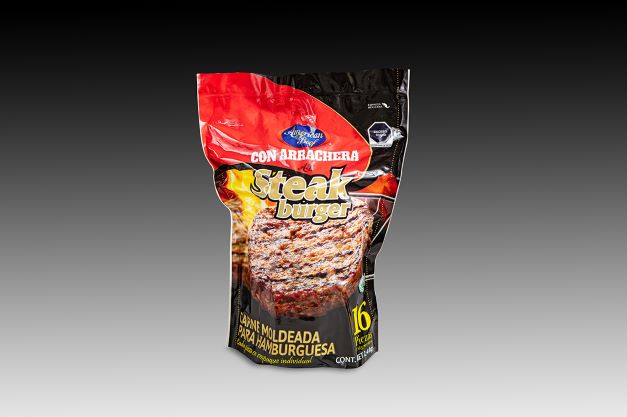November/December 2022
American Beef Steak Burger, 2.4 kg

Manufacturer: Printpack; printpack.com
Description: Stand-up pouches used for the frozen food market segment are typically manufactured with a polyethylene terephthalate and PE lamination, and sometimes include nylon to help with stiffness for on-shelf display. However, those laminations are not recyclable. The American Beef Steak Burger package is a 100% PE structure made with next-generation PE resins that are rigid enough to keep the package in an upright position and capable of being 100% recyclable.


